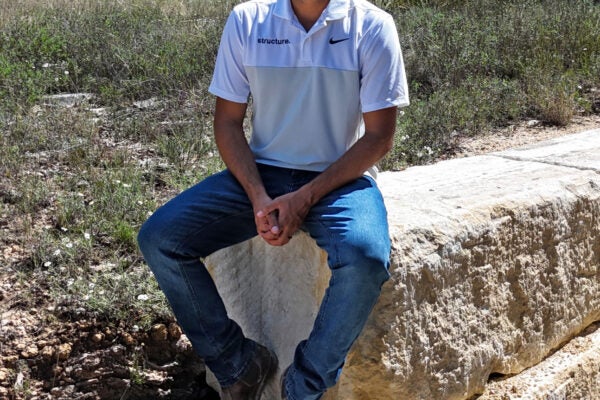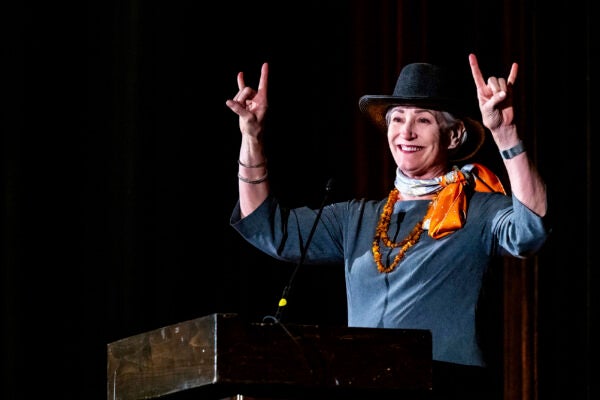Meet the Knowledge Creators
Ph.D. researchers are in demand as businesses seek speedy adaptation to new technologies
by Judie Kinonen
After first being thrust into the remote work era, then facing the Great Resignation, and now scrambling to effectively — and ethically — use AI, more businesses are seeking the expertise of professionals with doctoral degrees.
“In high-flux times like these, every company has new questions,” says David A. Harrison, McCombs associate dean for research. “Should we all return to the office? Whom should we hire? Can we trust these technologies? The massive changes happening now in organizations demand research.”
That’s why business doctoral programs are having a moment. Though enrollment in individual programs — including those at McCombs — has held steady, the number of business schools offering doctoral programs globally has surged in recent years to help meet industries’ need for data to guide them during challenging and uncertain times. Learn more about McCombs Ph.D. programs.
Meanwhile, India, China, and more countries in Europe have adopted the U.S. model for Ph.D. education, moving away from the European model of studying under a single mentor and toward a more broad-based curriculum that includes a variety of classes, a mix of paradigms, and the chance to conduct research under several faculty members.
It’s a model McCombs has embraced and honed during nearly 50 years, spanning the departments of Accounting; Finance; Information, Risk, and Operations Management; Management; and Marketing.
Harrison says McCombs has a leg up in Ph.D. enrollment as one of only three public schools recently ranked by Financial Times among the top 10 in the world in research productivity, based on publication in the top business journals. McCombs graduates an average of 15 doctoral students annually but last year had a “bumper crop” of 19, Harrison says.
He adds that the school notches strong success in placing Ph.D. graduates in high-profile positions, whether in academia or industry. About 75% of McCombs Ph.D. graduates enter academia, but a growing number are finding meaningful work within companies — particularly large tech companies.
There’s more competition for the same group of folks, that top set of really smart, really motivated potential students.”
— David Harrison, McCombs Associate Dean of Research
“The Ph.D. is not a turbo MBA. It’s not just taking more classes,” Harrison says. “You get trained in how to do behavioral and social science within an organizational and market context. We train people to become organizational scientists and be in the knowledge production business.”
What most appeals to Ph.D. graduates is the chance for autonomy, Harrison says. “What you get with a Ph.D., whether you’re in academics or many industry jobs, is control over what you study. Companies and universities understand that it’s this autonomy — this discretion and latitude — given to Ph.D.s that is crucial to getting the kinds of intellectual production that they want.”
In the following pages, we reveal ways in which graduates use this hard-earned autonomy to pursue the answers to some of industry’s toughest questions during these volatile times.
Benjamin Herndon
Ph.D. ’09, MBA ’96, Management
Chief Strategy Officer, Kungfu.ai
Austin
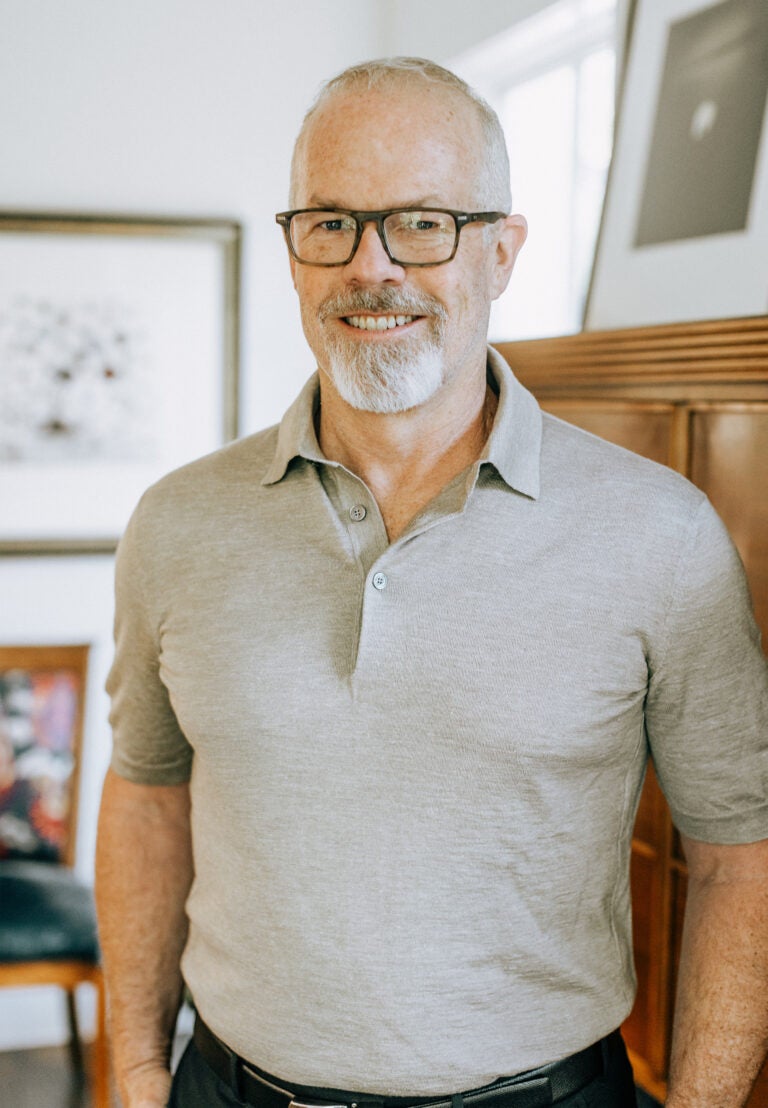
How did your experience at McCombs — especially working with faculty — prepare you for your current role?
With my adviser, professor of management Kyle Lewis, now at the University of California, Santa Barbara, I did a lot of research on shared cognitions — specifically, “transactive memory systems” — which are implicit processes effective teams apply for knowing who is good at what and integrating distributed expertise. We’d study teams’ ability to adapt to change by shifting their work or swapping team members. The faculty at McCombs emphasized scientific rigor, which sometimes meant tough love but ultimately helped me make my ideas stronger. All this training is core to how I work with Kungfu.ai’s clients today, helping leaders recognize and navigate the cognitive and organizational changes required to successfully integrate AI into their businesses.
What inspired you to pursue a Ph.D., and how did that decision shape your career path?
I’ve spent most of my career helping organizations succeed with emerging technologies. I realized that the very things that make organizations effective can also get in the way when they need to adapt. This fascination drove me to pursue my doctorate and take a faculty research position at Georgia Tech. I found I wanted to get back to leadership roles at the intersection of applied data and science. I was lucky to connect with then-IRS Commissioner John Koskinen, who recruited me to reorganize their operations, using data science and AI to better understand taxpayer behavior. It was a fascinating opportunity, and I’ve been focused on integrating AI into organizations ever since.
What aspects of your work today reflect the research or ideas you explored during your Ph.D. studies?
I’m really doing the same thing now: meeting executives where they are and helping them navigate the cognitive transitions to succeed with AI. Most executives didn’t grow up in this technological era. They know they need to do something, but they often don’t know where to start. My job is to help them understand the implications of AI and adapt their legacy toolkits to work in this new age.
Can you share a recent project that demonstrates how your Ph.D. training helped solve a real-world problem?
One of our recent successes that I’m quite proud of is a breast cancer risk prediction model we built for a local company called Clarity. It’s a bespoke AI solution that — by only looking at mammograms — can predict the likelihood of someone getting cancer five years before they actually do, and it was just approved by the Food and Drug Administration. It’s the first AI model of its kind and an example of the amazing things we can do when we focus on rigorously and responsibly applying AI solutions to the right problems.
Shannon Garavaglia
Ph.D. ’20 Accounting, M.S. ’17
Assistant Professor of Business
Administration, University of Pittsburgh
Pittsburgh
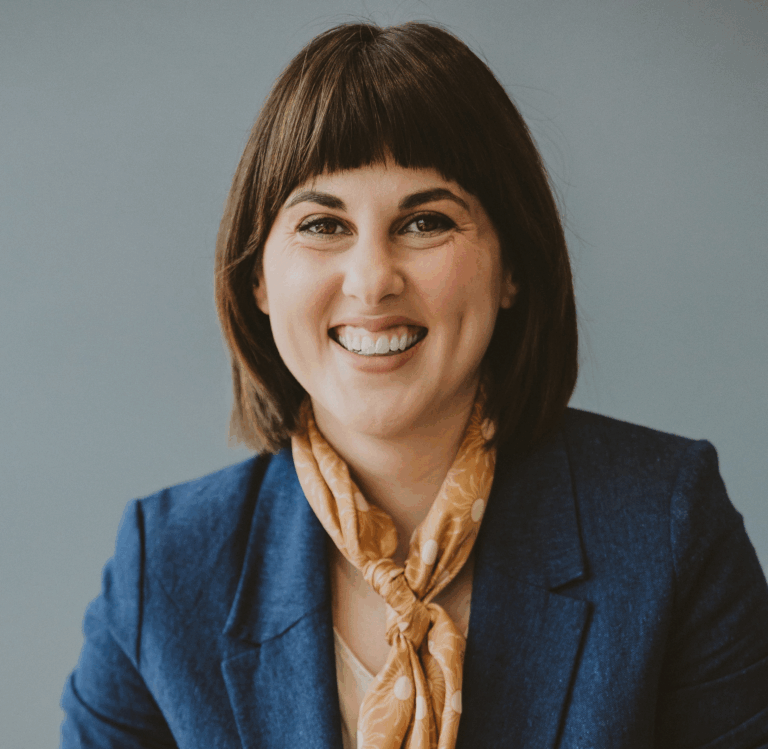
How did your experience at McCombs — especially working with faculty — prepare you for your current role?
I constantly hear the voices of my McCombs mentors in my head and find myself passing along their wisdom to Ph.D. students under my mentorship. For instance, I’ll always remember what accounting professor and now department chair Steve Kachelmeier would say when we started worrying about the length of time it takes to get an academic review back: He’d say, “No news means no news.” It is tempting to spin a story or read between the lines to infer a conclusion, but that quote from Steve is a reminder about the limits of inference.
What inspired you to pursue a Ph.D., and how did that decision shape your career path?
When I was considering going back to school after working in public accounting, one of my undergraduate professors suggested I consider a Ph.D. I found a career in academia appealing because it is like entrepreneurship, in that you have a lot of autonomy and the creativity to develop new research projects. As I explored different research areas, I learned about behavioral accounting — where we blend psychology with business — and I fell in love. McCombs faculty members are leaders in this field, and their mentorship has really shaped my career.
What aspects of your work today reflect the research or ideas you explored during your Ph.D. studies?
The faculty at McCombs have a strong track record of conducting impactful research, and my time at McCombs ignited my passion for asking research questions that are meaningful and that have relevance to practice. I’m still targeting top research journals, because I am at a top research institution, but I try to make sure that any project I undertake has well-defined implications for practice and is grounded in a question that is of importance to standard setters, regulators, or people in accounting practice.
Can you share a recent project that demonstrates how your Ph.D. training helped solve a real-world problem?
Before taking my role at Pitt, I spent a year as an academic fellow at the Financial Accounting Standards Board, and I’m expanding on that experience with co-authors. We’ve interviewed standard setters about how they use academic research and what they struggle with, and we’re writing a paper that we hope will better inform the academic community about how research is used so that they can develop research that has more of an impact in industry settings.
Sukumar Rathnam
Ph.D. ’93, Information Systems
Senior Technical Fellow,
Walmart Global Tech
Seattle
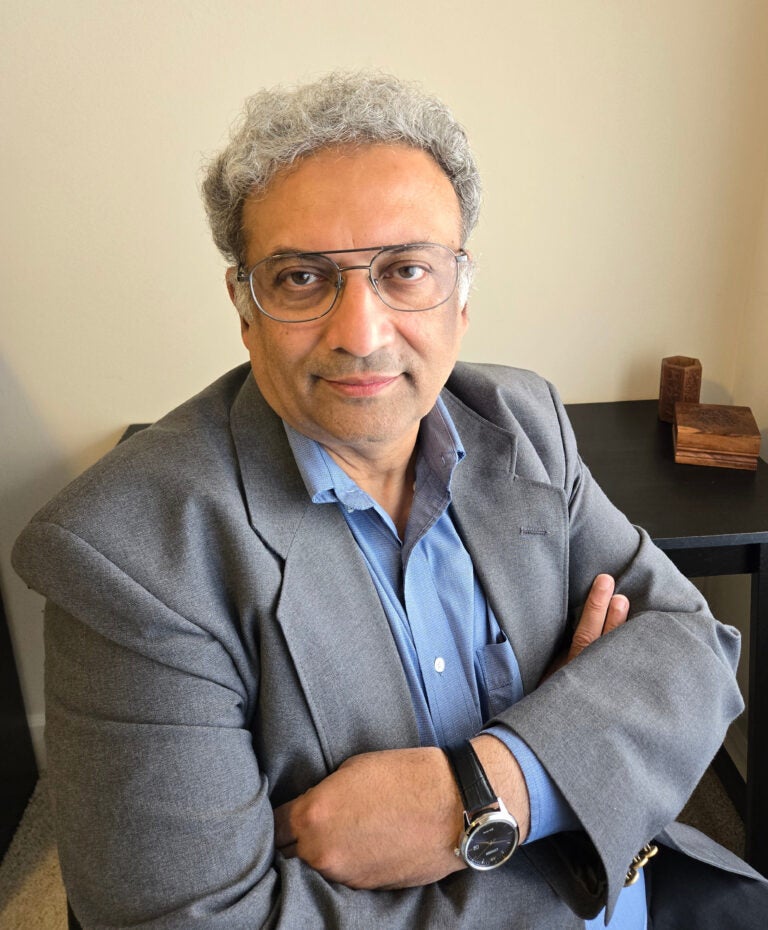
How did your experience at McCombs — especially working with faculty — prepare you for your current role?
My Ph.D. committee members and chairs were people with established distinguished careers, and they are still going strong. Professors of IROM Sirkka Jarvenpaa, Anitesh Barua, Andrew Whinston, and professor of marketing Vijay Mahajan were profoundly influential. They set a high bar for how I thought about problems and solutions, the way I worked, and how I achieved results. I still remember in my first year getting feedback on my papers with a lot of red ink. I learned how to effectively frame issues and write with clarity and precision — skills that are still important.
What inspired you to pursue a Ph.D., and how did that decision shape your career path?
My dissertation was about how to support business processes with software used for collaborating and how to apply the theories and systems to customer service, what we now call customer relationship management (CRM). While I was finishing my dissertation, a CRM startup in California reached out to me, and I joined them. In my first year, I taught at the University of California at Berkeley to keep the door open to academia. But then, I decided to stay in the software industry because I liked it so much, and I was going back to my computer science roots. We were solving all kinds of interesting problems that enterprises had with new types of technology and novel software architectures. So, while I didn’t expect to go into industry, I ended up there and never looked back.
What aspects of your work today reflect the research or ideas you explored during your Ph.D. studies?
Walmart is an omnichannel retailer, and we start with how technology impacts customers. We also consider the impact on third-party sellers, the Spark drivers who deliver for us, and our employees and associates. Over my career, I’ve built and navigated generations of technology, from enterprise applications to large-scale services for the consumer internet, to mobile applications, and subsequently the public cloud. Now, we are in the era of deep learning and generative AI, which is potentially the most transformative technology of our lifetimes. So, while there always are new challenges and big inflections, I still depend on the fundamentals I learned in my Ph.D. classes and research.
Can you share a recent project that demonstrates how your Ph.D. training helped solve a real-world problem?
We are in the middle of the AI inflection, and I am building large-scale AI/ML systems. The nature of how we work is changing dramatically, so we have to make sure the people we hire are equipped for ubiquitous AI/ML. The critical thinking and all of those skills honed at McCombs have become far more important as we approach new problems.
Take Action
Help support future researchers and problem-solvers. Contribute to the Kenneth M. Jastrow II Endowed Scholarship to support Ph.D. scholarships.
Getting an Early Start in Research
McCombs Launches Initiative To Fund More Undergraduate Research Assistants
Becoming one of the world’s top research universities doesn’t come easily. Just ask the McCombs students who put in long hours as undergraduate research assistants. They are one of the reasons David A. Harrison, associate dean for research, is spearheading an initiative for a pooled endowment to support the school’s Undergraduate Research Assistant (URA) Program. “Our students are absolute firebrands,” he says. “They are learning about cutting-edge research and are able to connect that to what is happening in their classes.”
There are currently 80 URAs in the program, which pairs undergraduate students with faculty members to gain valuable research skills by applying psychology, economic theory, and statistical methods to real-world business problems. URAs receive mentorship that can lead to new career pathways not previously considered. Harrison recalled a recent graduate who went on to medical school after being involved in the program.
“She really benefited from her time as a research assistant and was placed in one of the best med schools in the world,” Harrison says. “This program gives students the confidence to do this kind of work. Plus, they have a say in what problems we’re going to solve.”
Endowed excellence funds provide a stipend of approximately $1,200 per student per semester in exchange for an average of 10 hours of research work per week. And while not a large sum, that money goes to pay for ancillary educational costs such as books and fees that can be difficult for many students in the program to cover.
Through the pooled endowment, Harrison is appealing to prospective supporters to contribute $25,000 to support the program, but gifts of all sizes will be welcome. He hopes to grow the number of participants to 150-200. By doing so, he believes that The University of Texas at Austin won’t just be a top research school. It will become the standard bearer for others to follow.
“I’ll stack my URA students against anybody, anywhere in terms of smarts and motivation,” Harrison says. “And through this program, they are being involved in thought leadership and big ideas that will change the world.”
About this Post
Share:
